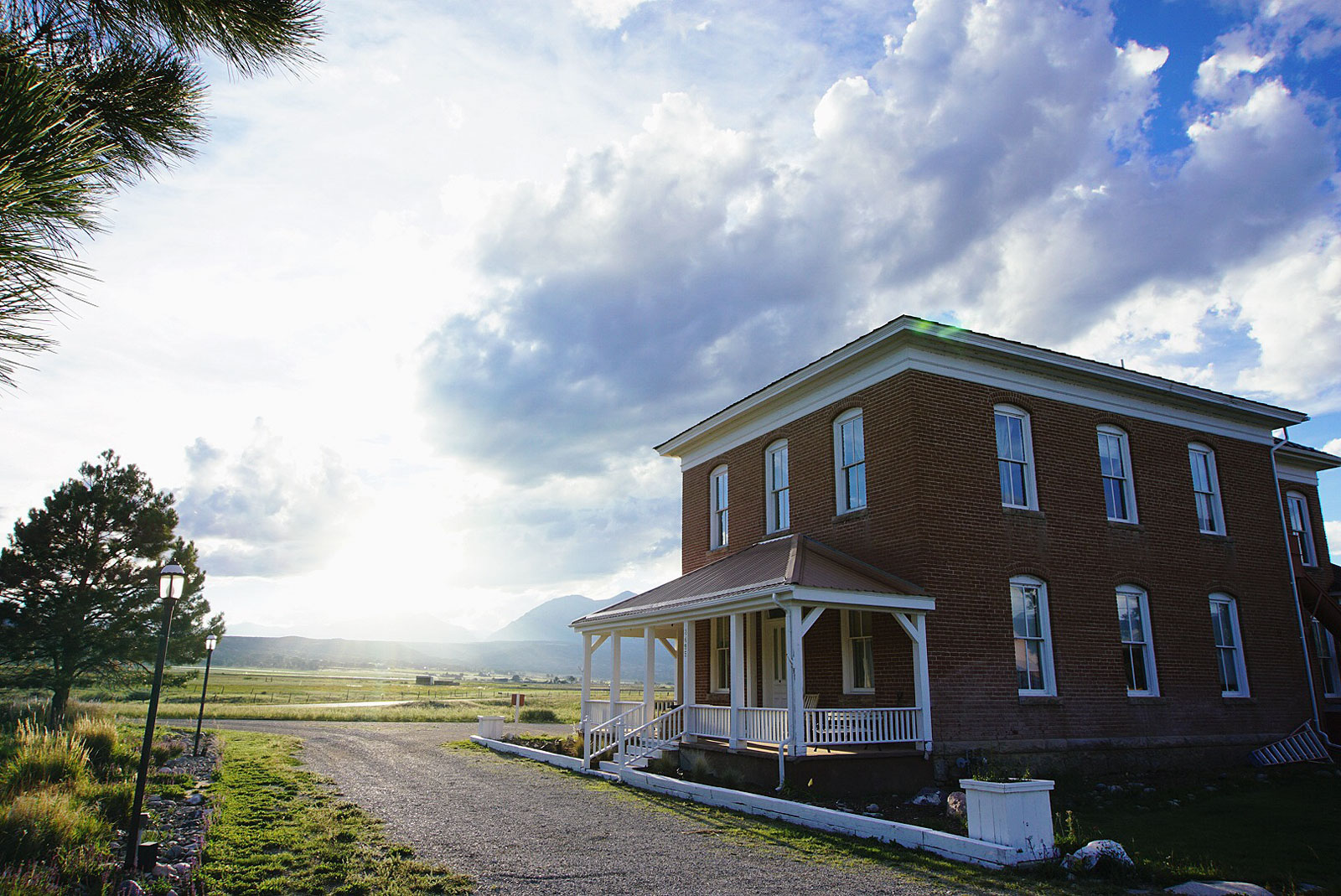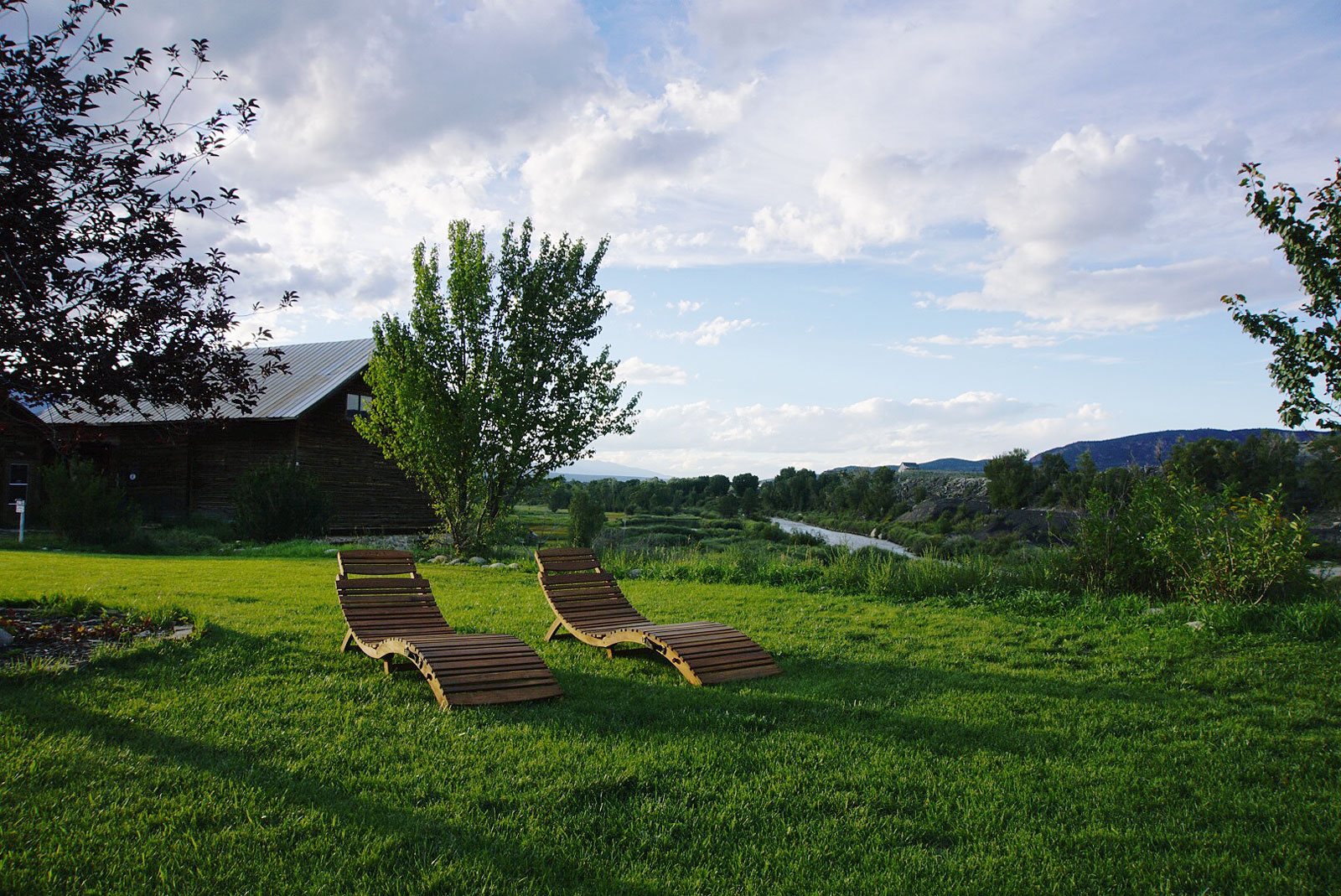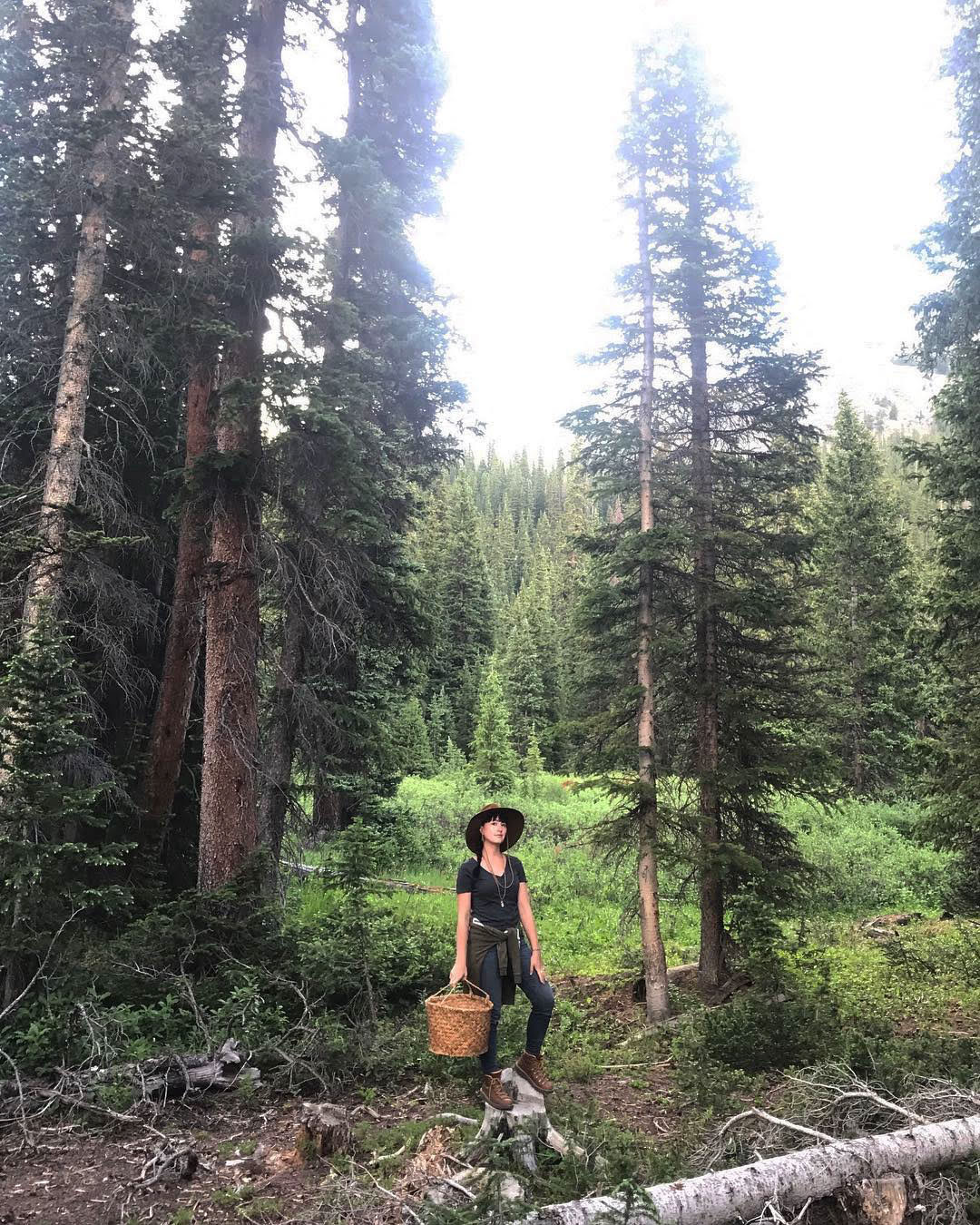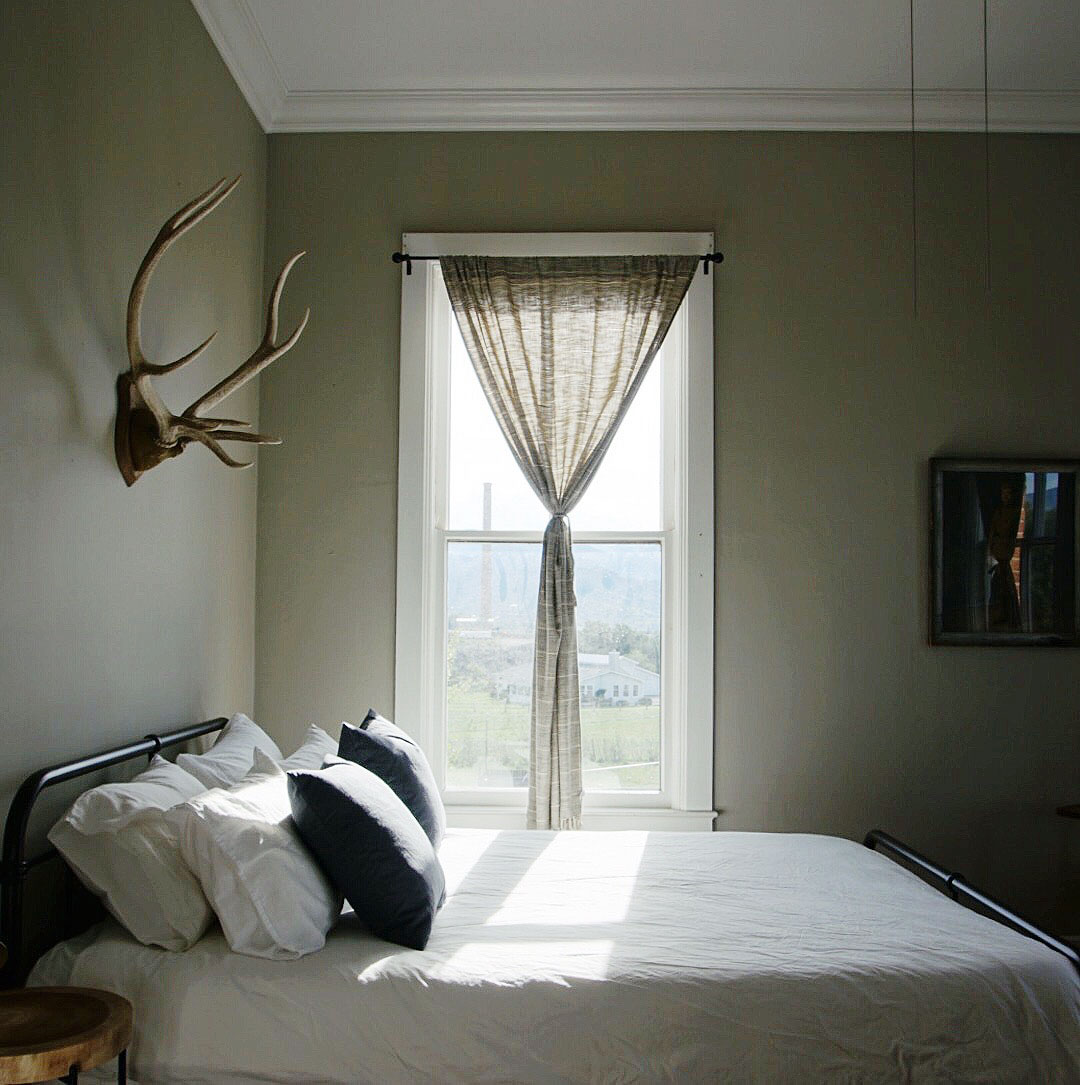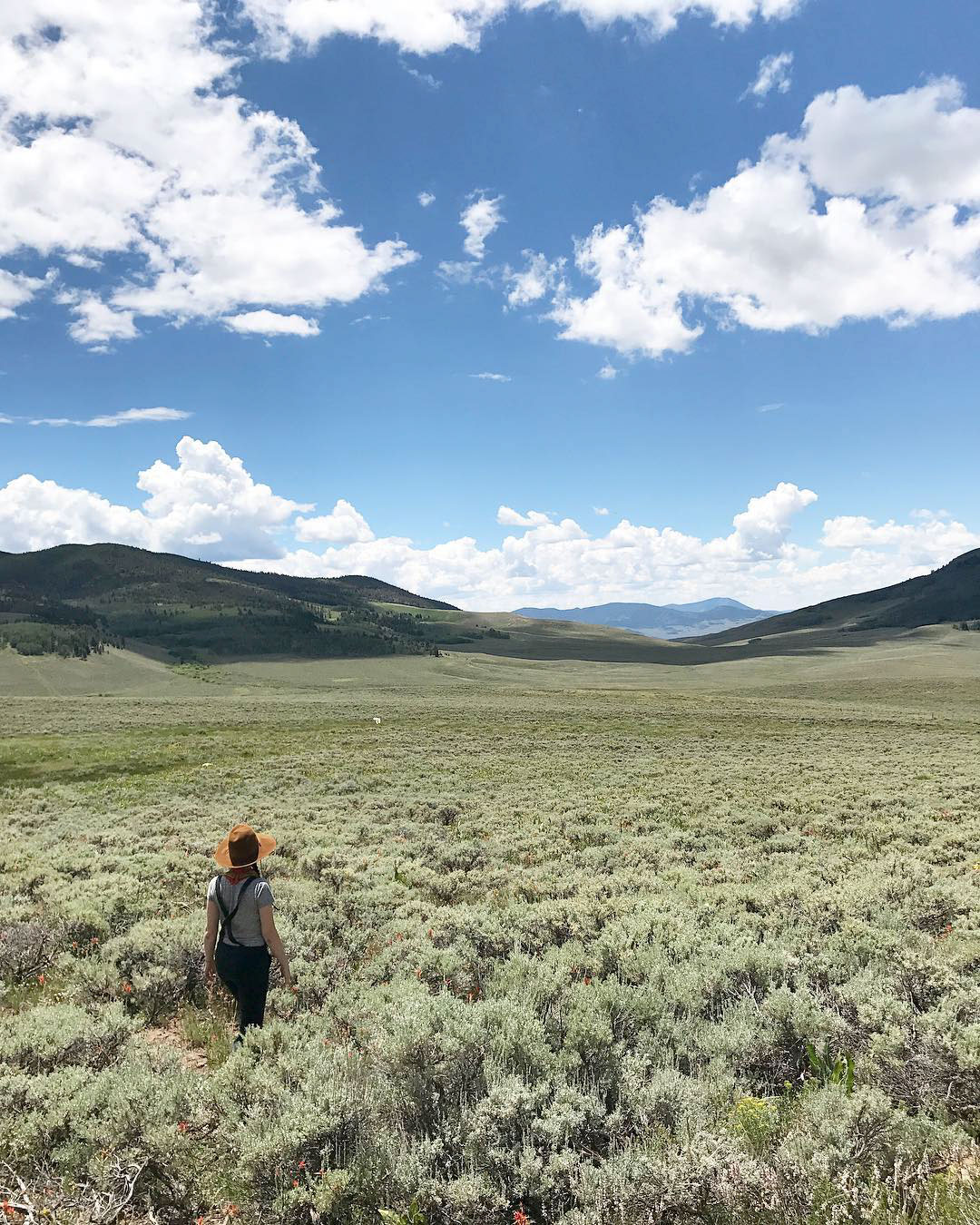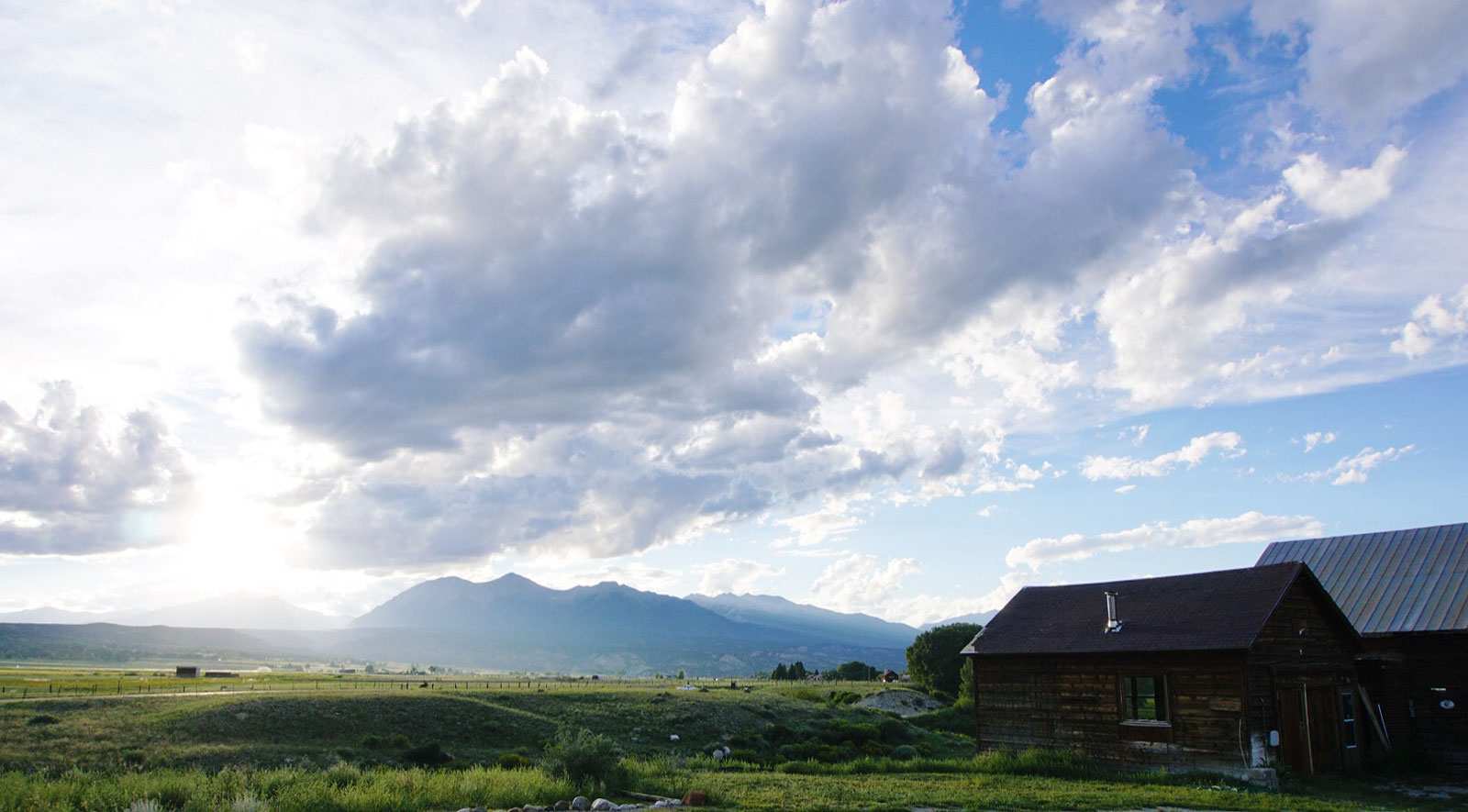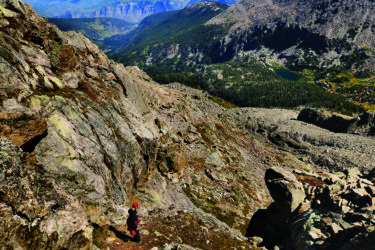The Local newsletter is your free, daily guide to life in Colorado. For locals, by locals.
If I’ve learned nothing else from living in the mountains, it’s that fall is the perfect time for a road trip. The highways are (mostly) free of traffic, aspens are ablaze, and the days are clear and crisp. Salida, a historic mining and ranching town-turned-whitewater mecca on the Arkansas River, has quickly become a favorite destination. The laid back city has a mild climate and robust arts, retail, and outdoor scenes—but one thing it has lacked is lodging options that matched Salida’s up-and-coming status, other than the admittedly fetching Palace Hotel.
Salida now has an influx of stylish Airbnb digs to accommodate its slew of visitors. Rentals range from modern downtown lofts to 19th century bungalows, as well as the retro-cool Amigo Motor Lodge on Highway 50 (on my recent visit, their signage boasted, “We now have gluten-free beds!”). Just recently, another chic and unique option has opened up in town, from the founders of my favorite craft beverage producer, Dram Apothecary—purveyors of wild-foraged, alcohol-free bitters, syrups, switchels (vinegar-and-honey-based concoctions popular in Colonial times as restoratives), and tea.

Shae Whitney and her business/life partner, Brady Becker, relocated from the living ghost town of Silver Plume to Salida last winter. Of the move, Whitney says, “It was just time to do something different. We needed more room so we could expand production, and we wanted to be able to grow our own herbs and flowers, so we needed a warmer climate. We were looking for a place with a strong sense of community, that wasn’t a resort or a ghost town. Salida just checked every box.”
The couple purchased Salida’s Poor Farm, a late 19th century, two-story Colonial Revivalist brick structure on the National Register of Historic Places. Situated on five acres alongside the Arkansas River, it’s just two miles from central Salida, but has the look and feel of a Midwestern farmhouse. The Collegiate Peaks form a dramatic backdrop to this most bucolic of settings, in which a winding path leads to vintage metal rockers perched on a sandy little beach, ospreys soar overhead, and deer amble across the neighboring pasture.
I know all of this because I had the distinction being the first guest to stay at Dram’s reincarnated Poor Farm, which opened to the public (via Airbnb) on September 1. Whitney and Becker, who live in the adjacent cottage, renovated both properties themselves, relying largely upon reclaimed and found materials to create an utterly authentic Rocky Mountain rustic vibe (the minimalist décor consists of treasures like vintage books, taxidermy, and jars of fresh flowers—all the better to showcase relics like the original pressed tin ceiling downstairs).
There are six rooms (two Kings and four Queens; the attic will be converted to an artist residency apartment in the future), and I assure you, I have never experienced a bed so comfortable, and it wasn’t just the high-thread count sheets and plush duvet. There’s something so inherently soothing about the Poor Farm, it’s actually hard to justify leaving the property. Apparently, Whitney and Becker are not only talented, but prescient.
“When we discovered the property, it needed a lot of work,” Whitney says. “It had fallen into disrepair and the furnishings were dated and worn-out. It was a considerable project for us to take on, but we wanted to be able to share this gorgeous piece of Colorado history with visitors to the Arkansas Valley.”
The Poor Farm has gone from housing the destitute (they grew crops on the property, hence the name) to serving as a dance hall and grange for the Farmer’s Union. It shut down for a time in the mid-20th century. It’s been a bed-and-breakfast, and now, thanks to Whitney and Becker’s meticulous renovation, it’s become a piece of living history. The couple are driven by a passion for the outdoors and for restoring abandoned properties with a story.
While the Poor Farm isn’t a bed and breakfast, there’s a beautiful kitchen spacious enough to accommodate a full house of self-catering guests. A communal fridge and a DIY coffee and tea station are stocked with all of Dram’s products, as well as one-offs, like a firkin of collaborative brew made with Elevation Beer Co.’s IPA infused with fir needles, rose hips, and wild strawberry and raspberry leaves.
Come next year, the Dram garden will bloom with lavender, agrimony, lemon balm, blessed thistle, chamomile, and other perennials that Whitney will use in her creations, which include beguiling elixirs like Juniper-Rose syrup (try it for pacifying a cough, or in desserts or cocktails), alpine berry sparkling switchel, and Palo Santo bitters (the notes of vanilla, spice, and smoke make it a slam-dunk with mezcal or other tequila-based beverages).
As for those foraged botanicals that form the basis of Dram’s products? Salida has proved more fruitful than Whitney had even anticipated. “Within 20 minutes in every direction, there are diverse microclimates that allow us to forage all kind of plants, like fir, juniper, wild rose, sage, black currants, elderberry, and gentian. I’m currently working on a pinyon pine product, because it’s native to this region.”
If you’d like to take home some of Dram’s bitters and other products as souvenirs—and you certainly should—you’ll find them online or in Salida at Howl Mercantile & Coffee, which is a lovely place to while away a crisp fall morning.
With Whitney and Becker in charge, “going to the Poor Farm” is a wonderful thing, indeed.
If you go: The Poor Farm is open year-round; make your booking via Airbnb, or visit dramapothecary.com, from $110/per night. No pets or children under 13, please.



